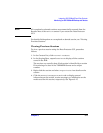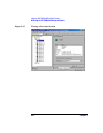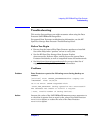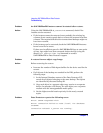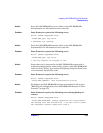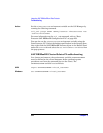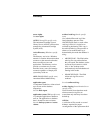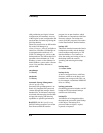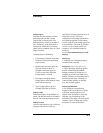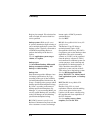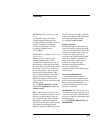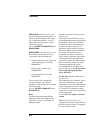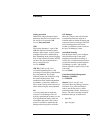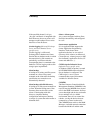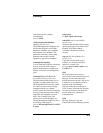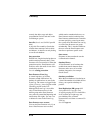
G-3
Glossary
backup object
A backup unit that contains all items
backed up from one disk volume
(logical disk or mount point). The
backed up items can be any number of
files, directories, or the entire disk or
mount point. Additionally, a backup
object can be a database entity or a disk
image (rawdisk).
A backup object is defined by:
• Client name: hostname of the Data
Protector client where the backup
object resides.
• Mount point: the access point in a
directory structure (drive on
Windows and mount point on
UNIX) on the client where the
backup object is located.
• Description: uniquely defines
backup objects with identical client
name and mount point.
• Type: backup object type (for
example filesystem or Oracle).
backup owner
Each backup object in the IDB has an
owner. The default owner of a backup is
the user who starts the backup session.
backup session
A process that creates a copy of data on
storage media. The activities are
specified in a backup specification or an
interactive session. All clients
configured in one backup specification
are backed up together in one backup
session using the same backup type (full
or incremental). The result of a backup
session is a set of media, which was
written to, also called the backup or
media set.
See also incremental backup and full
backup.
backup set
A complete set of integration objects
associated with a backup.
backup set (Oracle specific term)
A logical grouping of backed up files
that are created using the RMAN
backup command. A backup set is a
complete set of files associated with a
backup. The files can be multiplexed to
increase performance. A backup set
contains either datafiles or archived
logs, but not both together.
backup specification
A list of objects to be backed up,
together with a set of devices or drives
to be used, backup options for all
objects in the specification, days and
time that you want backups to be
performed. The objects are entire disks/
volumes or parts of them such as files,
directories, or even the Windows



